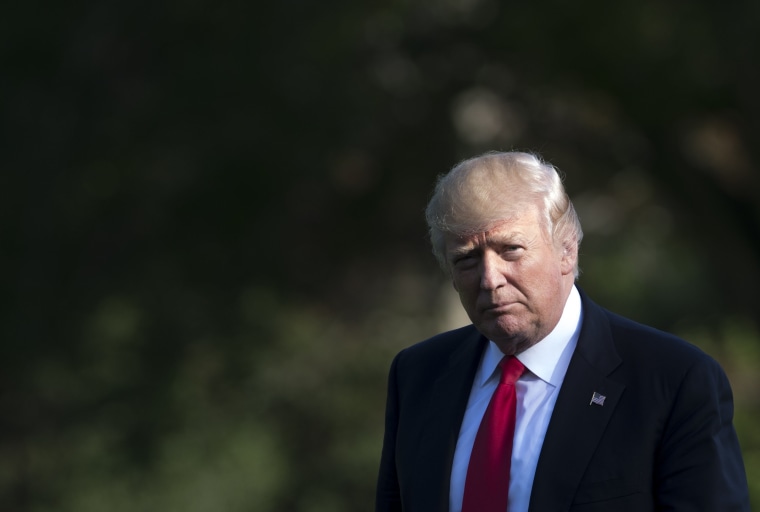The New York Times has a lengthy report today on Donald Trump's extensive efforts to interfere with the investigations into his assorted scandals, and the piece is well worth your time. I won't try to unpack all of it -- the article is nearly 5,000-words long -- but I will draw your attention to a specific anecdote that may prove to be quite important:
As federal prosecutors in Manhattan gathered evidence late last year about President Trump's role in silencing women with hush payments during the 2016 campaign, Mr. Trump called Matthew G. Whitaker, his newly installed attorney general, with a question. He asked whether Geoffrey S. Berman, the United States attorney for the Southern District of New York and a Trump ally, could be put in charge of the widening investigation, according to several American officials with direct knowledge of the call.Mr. Whitaker, who had privately told associates that part of his role at the Justice Department was to "jump on a grenade" for the president, knew he could not put Mr. Berman in charge, since Mr. Berman had already recused himself from the investigation. The president soon soured on Mr. Whitaker, as he often does with his aides, and complained about his inability to pull levers at the Justice Department that could make the president's many legal problems go away.
Broadly speaking, there are a couple of ways to look at revelations like these. The first is by focusing specifically on the president: Trump, clearly concerned about the hush-money case in which he was effectively named as an unindicted co-conspirator, apparently tried to arrange for an ally to oversee the case.
In a normal political era, this alone would be a jaw-dropping, stop-the-presses revelation. If the Times' reporting is accurate, the sitting president reached out to his handpicked attorney general, hoping he could also handpick a conflicted prosecutor to intervene in a case in which the president may yet face criminal scrutiny.
If true, it suggests Trump abused his power and obstructed justice. In 2019, it also means it's a typical Tuesday.
But then there's the angle that relates to Matt Whitaker, who stepped down last week as the acting attorney general, but who's still at the Justice Department.
To be sure, if Trump called Whitaker as part of a scheme to rig the case, it means the president did something outrageous, and possibly even criminal, but that's not Whitaker's fault. All he did was answer the phone and tell Trump he couldn't fulfill the presidential request. So far, so good.
The trouble, however, is what the former acting attorney general told Congress under oath about his interactions with Trump. Consider this exchange, for example, between Whitaker and Rep. David Cicilline (D-R.I.), during last week's House Judiciary Committee hearing:
CICILLINE: Mr. Whitaker, did the president lash out to you on or about December 8, 2018, to discuss a case before the southern district in New York where he was identified as individual one?WHITAKER: No, congressman.CICILLINE: Did anyone on the president's behalf. either inside the White House or outside the White House. contact you to lash out or express dissatisfaction?WHITAKER: Did they contact me to lash out?CICILLINE: Yes. Did they reach out to you in some way to express dissatisfaction?WHITAKER: No.
There's now reason to believe the answer should've been, "Yes."
Keep in mind, the House Judiciary Committee's Democratic leadership recently reached out to Whitaker, offering him a chance to clarify his testimony, and insisting that some of the claims he made under oath have been "contradicted by other evidence."
The committee specifically referred to Whitaker's claims about Michael Cohen and Trump's hush-money scandal. Perhaps now we know why?
Postscript: Just yesterday, I noted that the hush-money scandal's relevance is ongoing. Today's reporting helps bolster the point.
